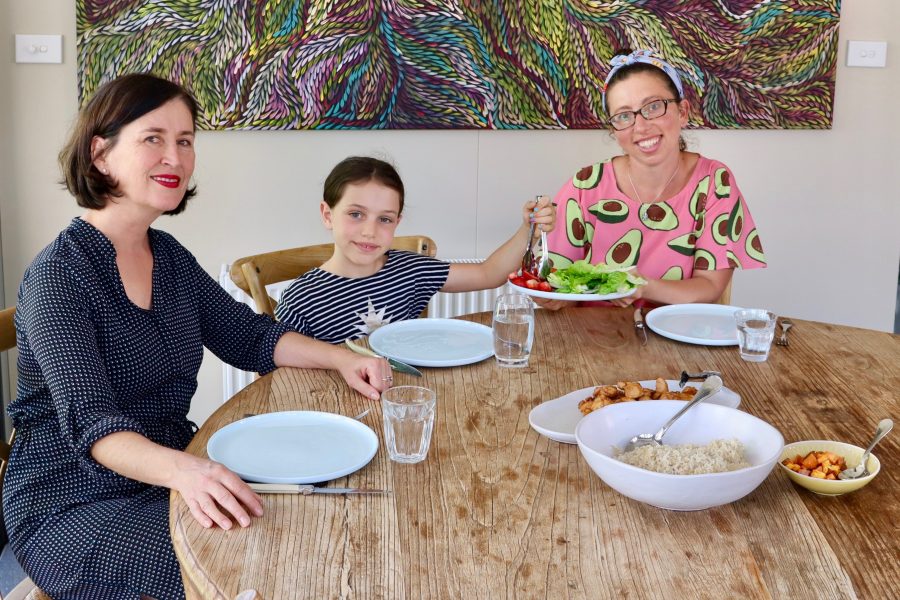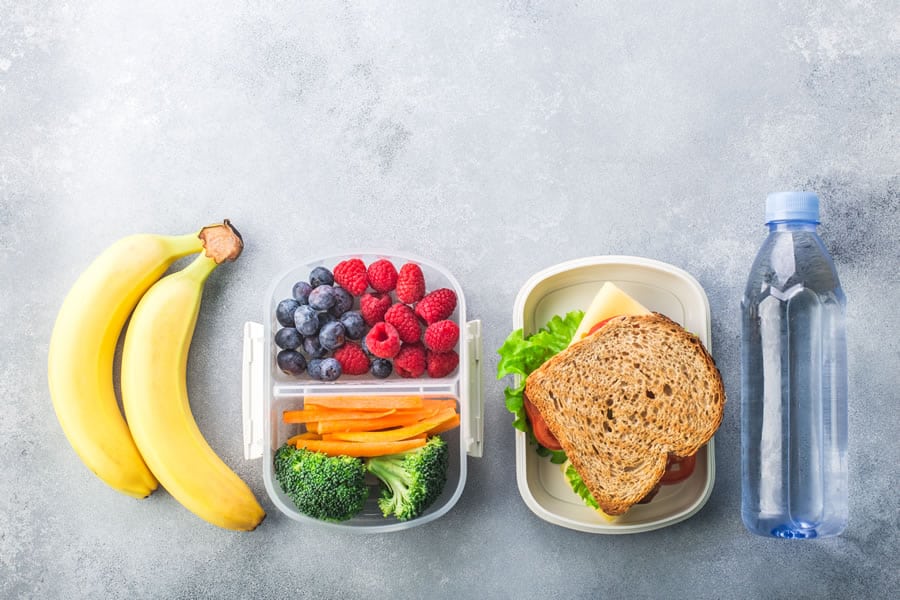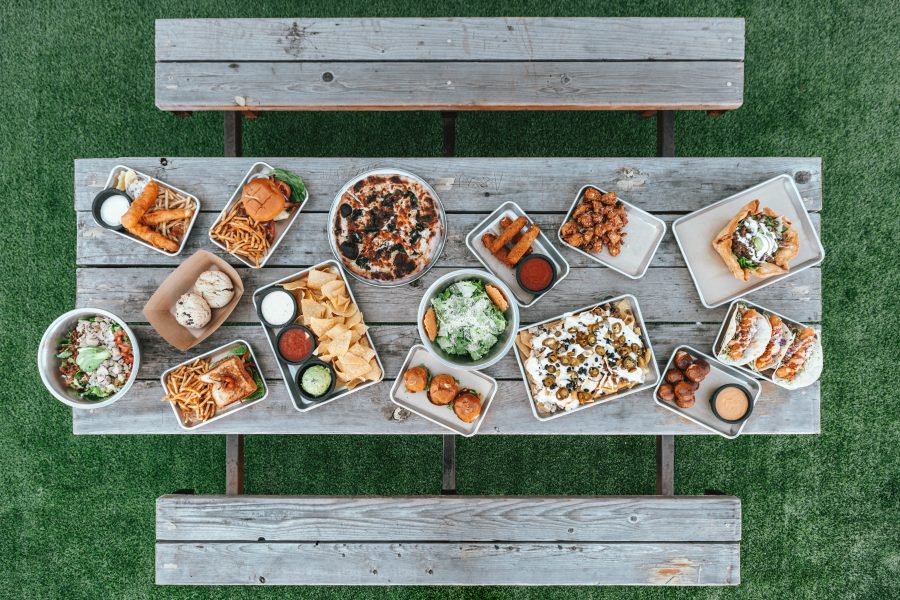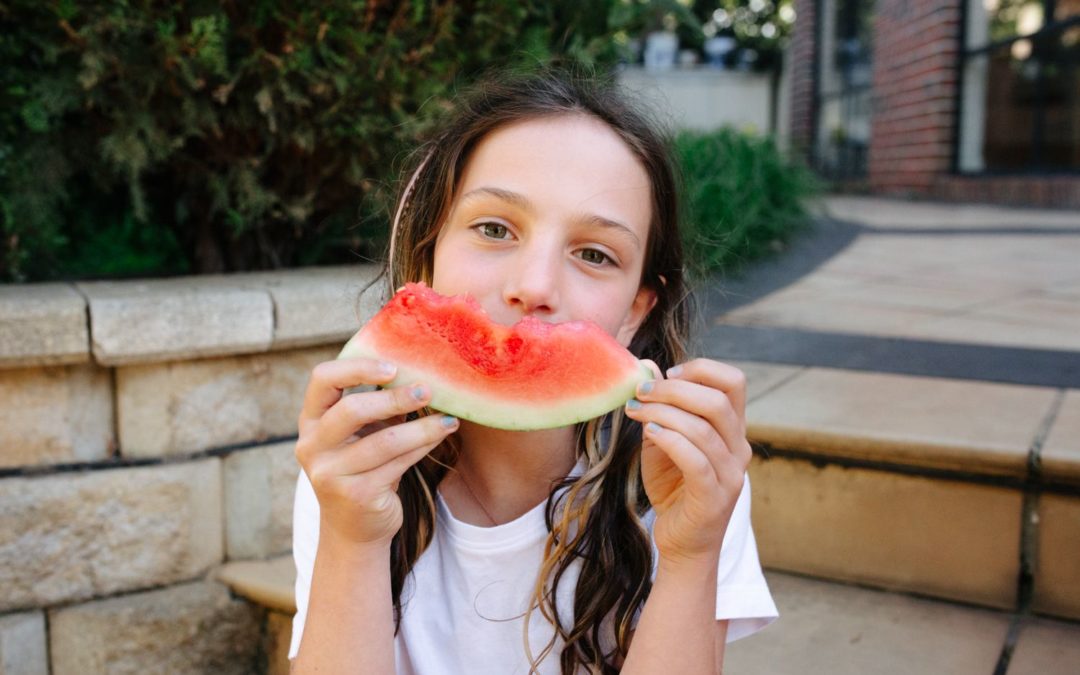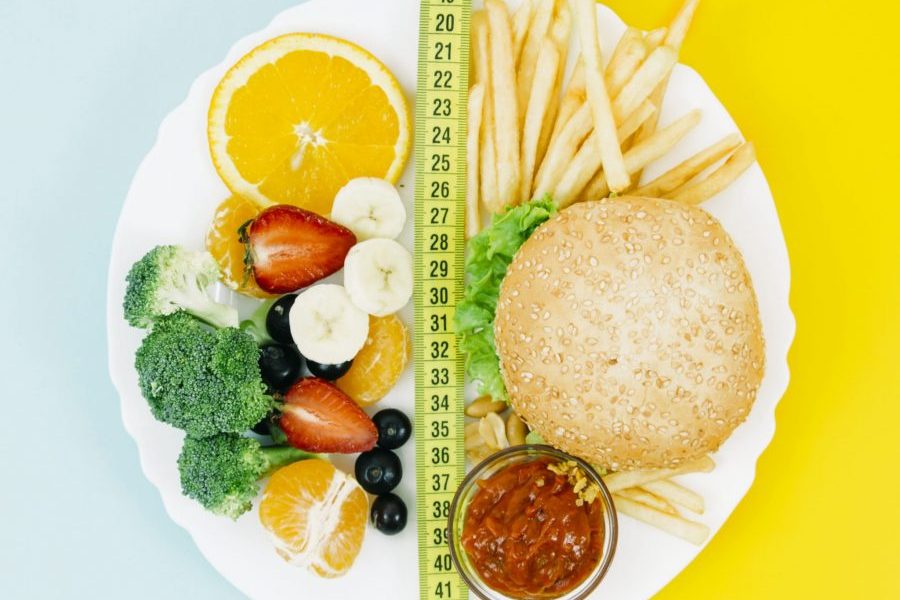Kate Wengier from Foost and Marie-France Laval from Fussy Eating Solutions recently sat down over a delicious lunch to discuss food and nutrition. Welcome to their conversation.
They discussed the difference in eating cultures, food messaging and obesity rates between France (Marie-France’s native country) and Australia (or America when we didn’t have rates on Australia).
MF: “In France, the food culture is so different. When it comes to meals we serve food in the middle of the table. We are big on manners and sitting down together, probably that matters more than how much or what you eat.”
K: “So it is part of your culture to eat family style. In Australia, I think feeding cultures are really mixed, with many families serving up plates. But in Australia there is a lot of parental control in feeding (over quality and quantity).I I’m so tired of the pressuring health messages here in Australia like the traffic light system (green = everyday, orange = sometimes and red = occasionally. It’s all very subjective.”
MF: “Yes, I think it’s confusing people. Now everyone’s a nutritionist, judging what everyone else is eating. Parents are under pressure to get their children to eat certain foods, they can see what’s left of the plate. They are so stressed out dealing with fussy eaters. Of course in France we receive similar health messages, but our eating culture prevails over nutrition messages. We serve food from the centre of the table, so if children eat limited vegetables to start with we are not so fussed.”
K: “And what about fussy eating and obesity rates comparing France to Australia?”
MF: “The rate of obesity amongst children is about half in France, fussy children are as likely to become fussy eventually but the French culture is very effective in supporting parents.”
K: “So, if current health messaging worked, shouldn’t we both be out of a job?”
MF: “The current dietetic based approach to eating: looking at one’s plate and assessing it for nutrition puts pressure and confuses people rather than supporting them. “Did you know that a poor American woman who cooks is likely to be healthier than a wealthy woman who doesn’t cook?”. There are quite a few studies linking cooking skills to better long term health outcomes.”
Eating for nutrition or intiutively
MF: “To me what is interesting is looking at why and how we eat. So the eating culture in France has for a long time been centered around structure and pleasure of eating. If you look at statistics you will find that most of France is at lunch or dinner at specific times. So that’s structure and there isn’t room for grazing. It means at mealtimes, you listen to your appetite, it helps you choose from the offerings. I think on this basis the French are intuitive eaters.”
K: “That is very interesting Marie-France. There is just so much pressure and judgement here in Australia on parents that their children are not eating enough “healthy food” that we are forgetting we are raising future eaters. We are very focused on the what and not on the how. We are currently not teaching food and nutrition intuitively. And young children, and most adults for that matter, cannot comprehend these nutrition messages. I love the French approach.”
Eating with food beliefs
K: “Do you think that telling people what to eat works?”
MF: “So years ago I remember walking into a patient’s room back in France. I said “can I come in I am the dietitian?”. The man replied “I don’t want you to tell me what to eat”. I think in these two seconds, I learned everything I needed. For French dietitians, beliefs ought to be respected, what one person eats, what they believe is sacred to them. You have to work with those parameters. Judging how people eat or making them feel inadequate as they feed their children is a mistake.
K: “It’s really respect for each other. Simple cooking, relaxing more around food and eating family style. So Marie-France what you are saying is food is more than fuel to the French?”
MF: “Yes it’s about pleasure. Pleasure of eating is based on cooking a variety of foods to provide satisfying meals. However it is also about the company you keep. For the French meal time is still shared with colleagues, friends or family and children share in the conviviality.”
Kate, I would love to invite you to a cooking session with me. Would you teach me one of your favourite dishes? Then we can sit down and continue this conversation over another meal…”
K: “Thanks Marie-France for being my guest today.”
About Marie-France
Marie-France is a Dietitian-Nutritionist and Counsellor originally from France. She is married to an Aussie and has lived in Australia for almost 20 years. She has 3 children, all in their late teens- early twenties. She is the founder and CEO of Fussy Eater Solutions and offers a range of online and in-home programs to support fussy eaters and their families. She writes for Kiddipedia and has been featured on various SBS, ABC, and Little Rockers Radio.To find out more about her programs and blog check out her website, or her instagram for inspired family meals ideas.

